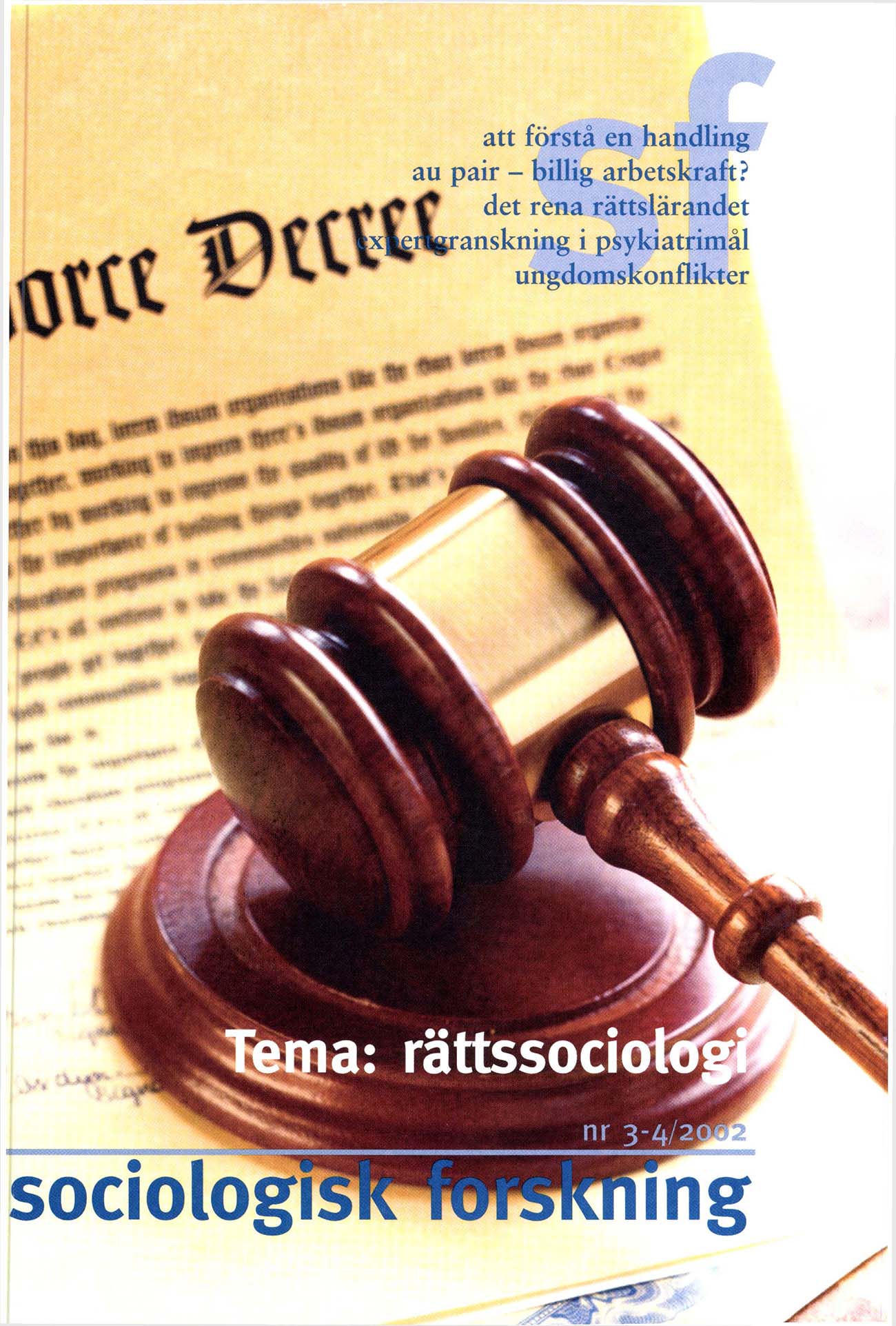Det rena rättslärandet
kognitiva funktioner i ett normativt system
DOI:
https://doi.org/10.37062/sf.39.19441Keywords:
legal learning, legal change, systems theory, positive lawAbstract
Pure legal learning: cognitive functions in a normative system
Norms are the obvious foundation for most of legal sociology and jurisprudence. Norms can be defined as counterfactual expectations, expectations that do not change even when counter-evidence of reality is presented. Thus learning is counter to our intuition of law. However, law does change, and some of the changes can be described as learning. Law changes by political decisions when the legislator acts, it can change incrementally when the judge makes a decision, it changes when new practices become binding, and it changes when doctrine is developed in legal science. If we differentiate between learning within a worldview and a learning that changes world-views, most cases of legal change can be interpreted as decision-making within a world-view, not the development of one. In this article, the author develops a conceptual frame of reference, in terms of pure legal learning, for a specific type of legal change. Pure legal learning denotes a learning process, which is not merely a change within a world-view, but a change in the legal world-views themselves. This is therefore the process where degrees of freedom for legal change are defined.
Downloads
Published
How to Cite
Issue
Section
License
All content in Sociologisk Forskning is published with immediate open access, under the Creative Commons license CC BY-NC-ND 4.0.
All content may be read, downloaded, shared and printed for non-commercial purposes, free and without fees. Contents may not be altered. When content is reused, author, source and a link to the copyright licence must be provided. The author retains copyright to their content. No publication fees are charged.





